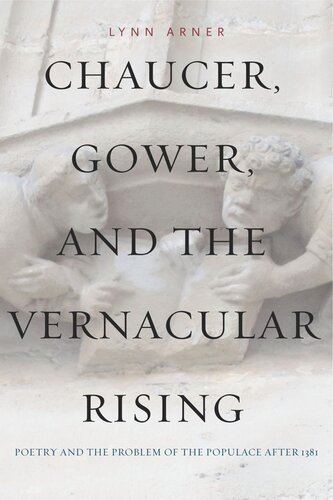

Most ebook files are in PDF format, so you can easily read them using various software such as Foxit Reader or directly on the Google Chrome browser.
Some ebook files are released by publishers in other formats such as .awz, .mobi, .epub, .fb2, etc. You may need to install specific software to read these formats on mobile/PC, such as Calibre.
Please read the tutorial at this link: https://ebookbell.com/faq
We offer FREE conversion to the popular formats you request; however, this may take some time. Therefore, right after payment, please email us, and we will try to provide the service as quickly as possible.
For some exceptional file formats or broken links (if any), please refrain from opening any disputes. Instead, email us first, and we will try to assist within a maximum of 6 hours.
EbookBell Team

4.0
96 reviewsChaucer, Gower, and the Vernacular Rising examines the transmission of Greco-Roman and European literature into English during the late fourteenth and early fifteenth centuries, while literacy was burgeoning among men and women from the nonruling classes. This dissemination offered a radically democratizing potential for accessing, interpreting, and deploying learned texts. Focusing primarily on an overlooked sector of Chaucer’s and Gower’s early readership, namely, the upper strata of nonruling urban classes, Lynn Arner argues that Chaucer’s and Gower’s writings engaged in elaborate processes of constructing cultural expertise. These writings helped define gradations of cultural authority, determining who could contribute to the production of legitimate knowledge and granting certain socioeconomic groups political leverage in the wake of the English Rising of 1381. Chaucer, Gower, and the Vernacular Rising simultaneously examines Chaucer’s and Gower’s negotiations—often articulated at the site of gender—over poetics and over the roles that vernacular poetry should play in the late medieval English social formation. This study investigates how Chaucer’s and Gower’s texts positioned poetry to become a powerful participant in processes of social control.